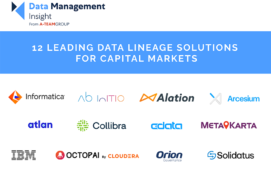Thomson Corp.’s agreed acquisition of Reuters, which remains subject to regulatory approvals, would essentially ‘reverse’ Reuters into Thomson Financial, creating a financial information business larger than current market leader Bloomberg (Market Data Insight, May 2007). Following the proposed merger – which envisages Reuters CEO Tom Glocer taking the helm of the overall Thomson-Reuters corporation and his sidekick Devin Wenig running the financial information business – it’s likely that Reuters’ enterprise data business would emerge as the dominant force in the combined company’s reference data activities.
Reuters has by far the larger of the two companies’ reference data operations. Indeed, Thomson Financial’s main activities in this area focus more on fundamental and descriptive databases than on the kind of securities and entity administration data normally considered as reference data in the strict sense. In reference data, as in much else, Reuters will dominate the merged Thomson Financial/Reuters operating unit – to be known as, erm, Reuters.
That said, Reuters’ enterprise data business is currently leaderless, following the departure of Kevin Bradshaw (Reference Data Review, April 2007). Several senior Enterprise group executives are currently vying to take on Bradshaw’s role, which reports into Enterprise group head Peter Moss. Thomson Financial, though, has something of a secret weapon in terms of reference data expertise, in the form of Thomas Aubrey, who has spearheaded the company’s push into the investment management segment in Europe. Aubrey, who joined Thomson from Interactive Data a few years ago, would be a valuable addition to the reference data brainpower of the combined entity.
Thomson also has recently entered the bond evaluations business, albeit through a tie-in with Standard & Poor’s (Reference Data Review, June 2006). Reuters has its own bond evaluations offering, and it’s questionable whether Reuters executives would have an appetite for continuing with an initiative that involved third-party-sourced information.
Subscribe to our newsletter




